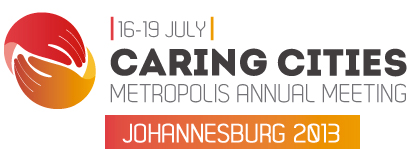How it all began?
The history of Johannesburg starts over 2 billion years ago when a giant meteor struck the earth 100 kilometers from Johannesburg, in an area which is now called the Vredefort Dome, a world heritage site, and the largest known meteor impact site in the world.
Learn more here
Tens of thousands of years ago Johannesburg was inhabited by indigenous people. They lived in the Johannesburg area until about AD 1060 when the Tswana speaking people migrated to the area. The earlier settlements died out, and it was only in the 1700s that these groups re-established themselves in the Klipriviersberg Nature Reserve. Officially the settlement was declared by Paul Kruger on the 4th October 1886 after the discovery of gold mine deposits.
Learn more here
A City in Change
- 1880sFrom mining camp to town
- 1890sEmergence of the central business district, introduction of the tram and other modern infrastructure
- 1900sArrival of the motor car, suburban expansion to the north, grand civic buildings, inner city slum and first slum clearances
- 1910sIndustrial buildings, redevelopment of Newtown, road construction
- 1920sThe rise of the department store, subsidized estates for whites, Sophiatown and Alexandra emerge as freehold suburbs for blacks
- 1930sHigh-rise development in the inner city, slum clearances in Doornfontein, new townships (e.g Orlando)
- 1940sIndustrial development, squatter settlements
- 1950sForce removals, mass township development, rapid suburbanization, the high-rise suburb (e.g Hillbrow)
- 1960sHigh-rise development in the inner city, freeway construction begins
- 1970sModern architecture, superblock development in the CBD (e.g Carlton), a first generation of shopping malls
- 1980sThe proliferation of decentralized shopping malls, informal settlement
- 1990sStrip development along major arterials, rapid inner city decline, edge city
- Developments, RDP (Reconstruction and Development Programme) housing
- 2000sArea based developments, 2010 FIFA World Cup Construction
Adapted from: Harrison, 2008 in Joburg! Towards 2010
Main OUTCOMES
- 425 registered delegates
- 99 cities and metropolitan regions represented by mayors, governors and senior officials
- 34 plenary sessions, workshops, meetings and technical tours
Main themes
- Food resilience
- Smart & agile cities in developing countries
- The power of the informal economy
- Resource resilience
- Engaged citizens
- Social cohesion in a caring city

































